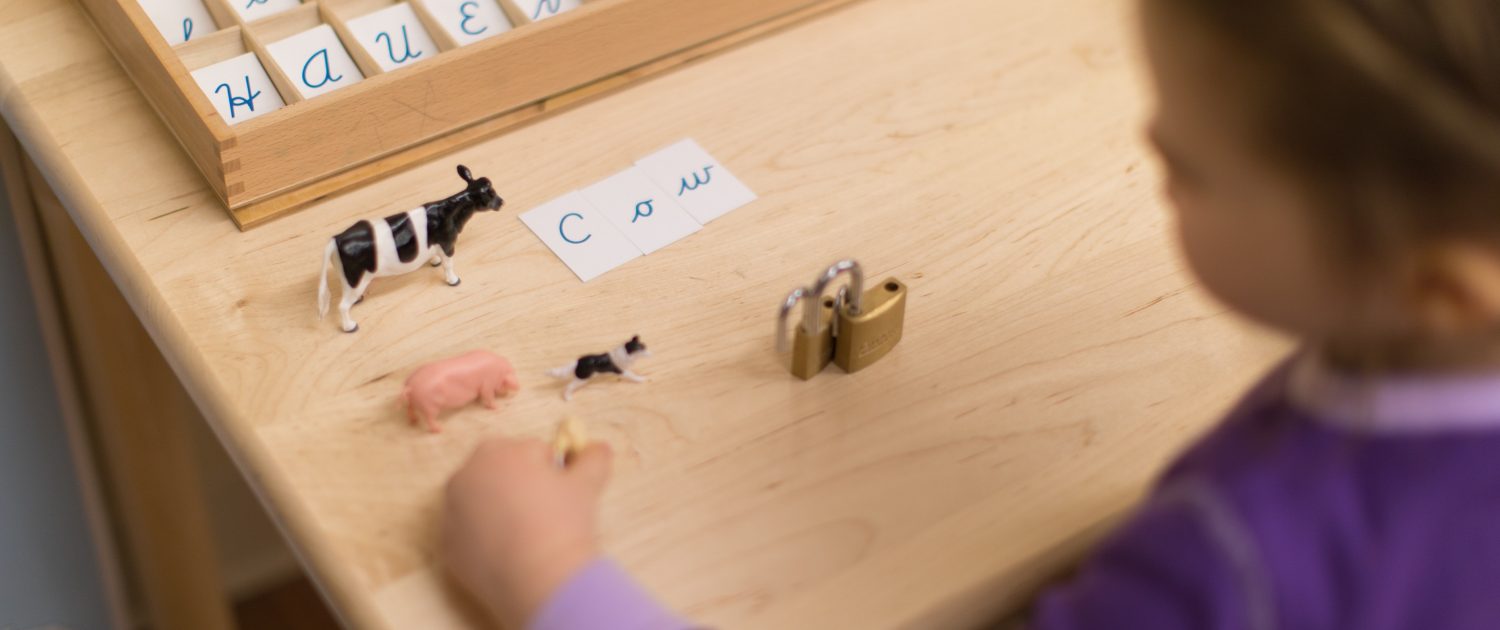Have you ever noted how it seems a child at a certain age can learn new words unconsciously and without fatigue, unnoticeable to himself and to those around him?
This is known in Montessori as a sensitive period. It is a time period when a child seems to quickly absorb new things without much perceived effort—when they seem to naturally soak up new information like a sponge. A child’s insatiable desire for words in this stage is a reflection of their need to explore and adapt to their surroundings. During a child’s sensitive period for language, they may continuously demand to learn the names of all the objects in their environment.
By the time children enter the Primary Montessori classroom, typically at age 3, they can already verbally express themselves and have a growing knowledge of words. The teacher’s (Primary Guide’s) role then is to aid the language development that has already started and continue it. The child will discover and explore language through engaging with spoken language in the environment and the classroom materials. This combination enables the child to enrich their vocabulary, freely explore language more in-depth, and gain a greater ability to communicate. The language material and classroom conversations provide children with a wealth of vocabulary needed to express themselves, properly construct sentences and communicate successfully.



